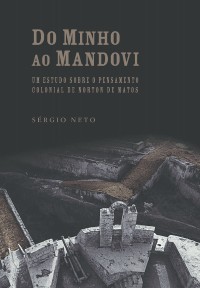Please use this identifier to cite or link to this item:
https://hdl.handle.net/10316.2/39869| DC Field | Value | Language |
|---|---|---|
| dc.contributor.author | Neto, Sérgio | por |
| dc.date.accessioned | 2016-11-03T17:11:09Z | |
| dc.date.accessioned | 2020-03-15T20:38:41Z | - |
| dc.date.available | 2016-11-03T17:11:09Z | |
| dc.date.available | 2020-03-15T20:38:41Z | - |
| dc.date.issued | 2016 | - |
| dc.identifier.isbn | 978-989-26-1172-3 | por |
| dc.identifier.isbn | 978-989-26-1173-0 (PDF) | por |
| dc.identifier.uri | https://hdl.handle.net/10316.2/39869 | por |
| dc.description.abstract | The long-lived General José Norton de Matos (1867-1955) had his greatest success in the colonial issue, besides the ‘Miracle of Tancos’ and him running for President, in 1949. Indeed, his commission in India, where he was in charge of Land Surveying, his participation in the mission responsible for establishing the borders of Macao, and the offices of Governor-General and High Commissioner, in Angola, marked many years of activity overseas, after which he wrote doctrinal books and collaborated in newspapers and magazines. The aim of this study is to follow the colonial thinking of Norton de Matos, in order to integrate it into his time. Having dealt with the overseas issue during three political regimes, we shall assess his colonial thinking based on the main thrust of the Constitutional Monarchy, First Republic, and the dictatorial regime of Estado Novo. Therefore, it is important to establish the contact points between the three regimes and explain the ideas that permeated his views. | eng |
| dc.description.abstract | A longa vida do general José Norton de Matos (1867-1955) teve na questão colonial, apesar do “Milagre de Tancos” e da sua candidatura à presidência da República, em 1949, um esteio maior. Com efeito, a sua comissão na Índia, onde dirigiu os Serviços de Agrimensura, a sua participação na missão encarregue de delimitar os limites de Macau, assim como os cargos de Governador-Geral e de Alto-Comissário da província de Angola, assinalaram muitos anos de actividade no Ultramar, a que se seguiu a redacção de livros doutrinários e uma vasta colaboração em jornais e revistas. O objectivo deste estudo é seguir o percurso colonial de Norton de Matos, de modo a integrá-lo na sua época. Havendo convivido com a questão ultramarina, ao longo de três regimes políticos, ensaiar-se-á avaliar a sua experiência colonial a partir das linhas de força da Monarquia Constitucional, da Primeira República e do Estado Novo. Importará, pois, estabelecer os pontos de contacto entre os três regimes e explicitar algumas ideias que permearam as suas visões. | por |
| dc.language.iso | por | por |
| dc.publisher | Imprensa da Universidade de Coimbra | por |
| dc.relation.ispartof | História Contemporânea | por |
| dc.rights | open access | por |
| dc.subject | Colonialism | eng |
| dc.subject | colonial policy | eng |
| dc.subject | propaganda | eng |
| dc.subject | First Republic | eng |
| dc.subject | New State | eng |
| dc.subject | Colonialismo | por |
| dc.subject | política colonial | por |
| dc.subject | propaganda | por |
| dc.subject | Primeira República | por |
| dc.subject | Estado Novo | por |
| dc.title | Do Minho ao Mandovi: um estudo sobre o pensamento colonial de Norton de Matos | por |
| dc.title.alternative | From Minho to the Mandovi: a study on Norton de Matos’ colonial thinking | eng |
| dc.type | book | por |
| uc.publication.location | Coimbra | por |
| dc.identifier.doi | 10.14195/978-989-26-1173-0 | por |
| uc.publication.digCollection | PB | por |
| uc.publication.area | Artes e Humanidades | por |
| uc.publication.manifest | https://dl.uc.pt/json/iiif/10316.2/39869/149564/manifest?manifest=/json/iiif/10316.2/39869/149564/manifest | - |
| uc.publication.thumbnail | https://dl.uc.pt/retrieve/8225192 | - |
| uc.itemId | 54642 | - |
| item.grantfulltext | open | - |
| item.fulltext | With Fulltext | - |
| Appears in Collections: | Pombalina | |
Files in This Item:
| File | Description | Size | Format | |
|---|---|---|---|---|
| do_minho_ao_mandovi.pdf | 2.92 MB | Adobe PDF |  |
Items in DSpace are protected by copyright, with all rights reserved, unless otherwise indicated.
